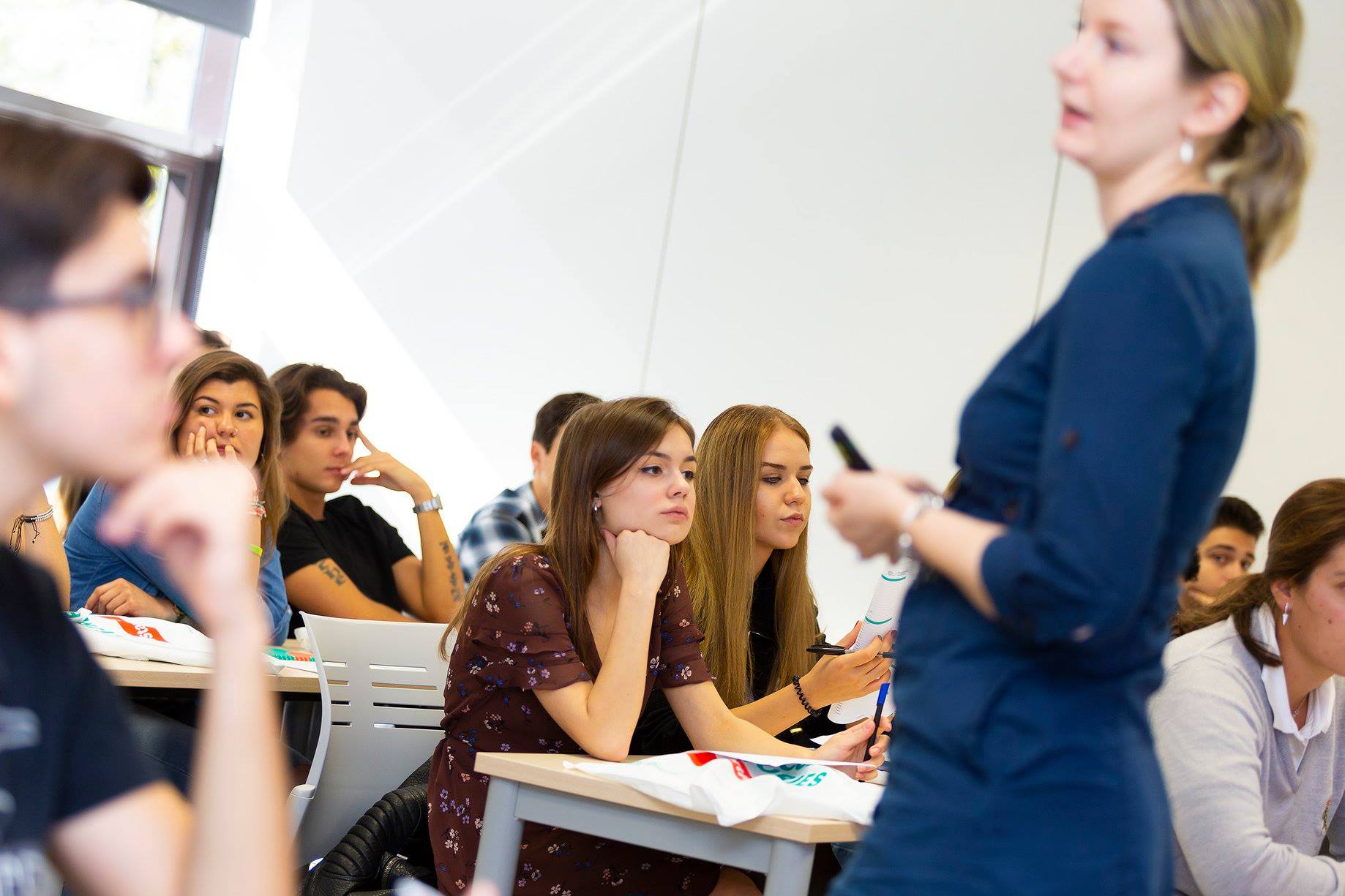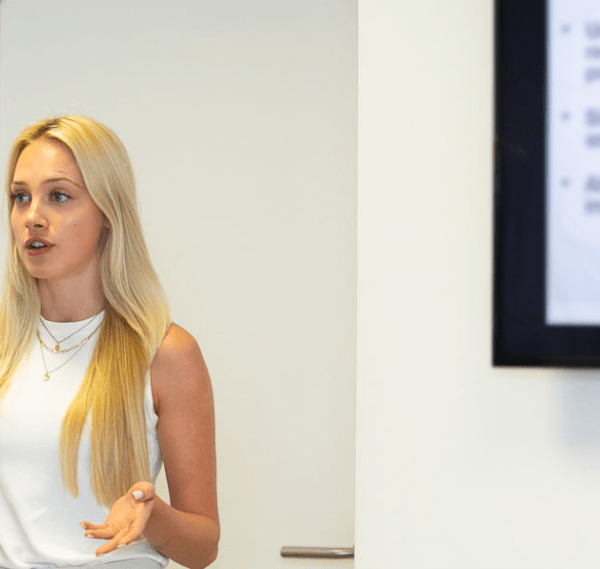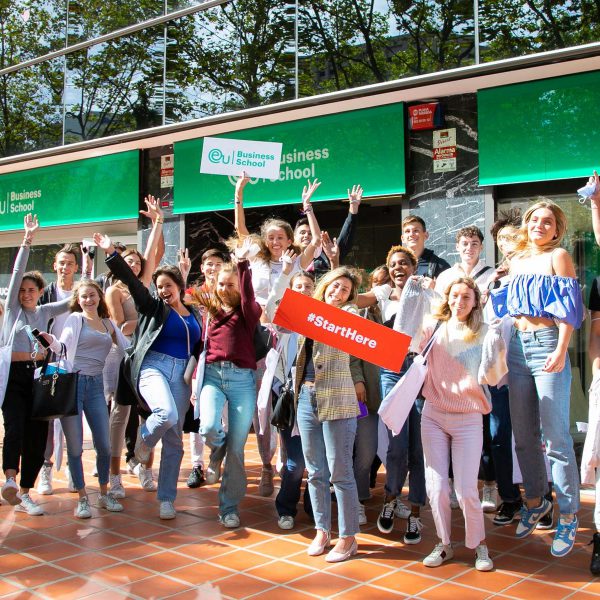Effective classroom management in higher education is a fine art. A balancing act. As an instructor, it’s your job to share the benefit of your knowledge and experience with your students. But at this stage in their education, you also want them to take responsibility for some of their own learning. This is where you may find it helpful to lean into the role of a facilitator instead.
In this article, we will explain what a facilitator in education does and how this role differs from that of a teacher. Then we’ll look at how teachers can use their platform to facilitate peer-to-peer learning and what skills you need to become an effective facilitator.
What is a facilitator?
Generally speaking, a facilitator is someone who helps groups of people work together to achieve a shared goal or attain better results. This might mean guiding professional teams through the brainstorming/product development process or engaging higher education students with peer-led discussions and seminars. Regardless of the exact goal, the key to effective facilitation is building a safe, structured environment that promotes communication, collaboration and creativity amongst the group.
What’s the difference between being a teacher and being a facilitator?
- Teachers are experts in a particular field, responsible for imparting information to their students. Facilitators concentrate on the learning process. They are there to encourage collaboration and self-learning.
- Teachers are more focused on delivering content, whereas facilitators stimulate discussions, ask questions to get the group thinking, and encourage peer-to-peer communication.
- Teachers decide how the class learns. Typically, this is through reading, listening, and remembering information. Conversely, it is the job of a facilitator to help students identify different ways of learning that work for them.
- Teaching is centered on learning concepts and theories vs. facilitation, which focuses on experiences that students are then encouraged to connect to the theories they’ve been taught.
- Teaching concentrates on the transmission of information to individuals, whereas facilitation is more about group dynamics and working together.
- As a teacher, you expect your students to follow instructions, take information on board, and do the work you’ve set. As a facilitator, you want your students to take responsibility for their own learning and contribute to group sessions.
How can a teacher become a facilitator?
These days, the traditional lecture format (which has been the main teaching method in European universities since the year 1050) is recognized as an outdated mode of instruction. Not only that, it’s also proven to be ineffective. A 2014 study by Scott Freeman et al. found that undergraduate students in classes with traditional lectures were 1.5 times more likely to fail than students who are taught using active learning methods.
So, it seems that it’s no longer enough for teachers to just stand at the front of a classroom and read from their lecture notes. In fact, one physicist at Harvard University stated “it’s almost unethical” in light of this research. Today’s educators need to be more than teachers – they need to be facilitators, too.
Of course, to be an effective facilitator in education, you first need to be a good teacher. It’s important to build a thorough and well-researched curriculum. The difference is in the delivery. Rather than seeking to control every aspect of the lesson, a facilitator hands over responsibility to the class.
This might mean introducing a discussion topic and allowing your students to lead the conversation or organizing group activities, e.g. Think, Pair, Share, which we talked about in our recent article, “How to Engage Remote Students”.
The role of the facilitator in these cases is to listen, observe, and correct or clarify points where they get stuck. However, an effective facilitator will recognize the importance of letting them try to correct their own mistakes first.




What skills and attributes do you need to be an effective facilitator?
1. Communication
Clear communication is essential when you’re leading a class or workshop. As a facilitator, it’s not your job to impart information, but you need to be able to convey your expectations to your students, give instructions, and ask questions to move the discussion on. Having strong communication skills isn’t just about being a confident speaker, however. It’s also about knowing when and how to listen. Effective facilitators practice active listening and prompt further discussion by asking open-ended questions based on their students’ contributions.
2. Time management
Effective educational facilitators know how to use the full length of the class to their advantage. They are also skilled at pacing activities just so, to keep energy and engagement levels up from beginning to end. Getting the balance right takes a lot of practice and requires you to be adaptable and have a strong sense of planning, plus an understanding of how the group functions together.
Did you know? Research shows that students have a longer attention span during interactive learning sessions vs. lectures, leading scientists to conclude that active learning methods have the dual benefit of engaging student attention during a class segment and refreshing their attention immediately after an instruction segment. Read more here.
3. Motivation
One of the biggest challenges you are likely to face as a facilitator is non-participation from some members of the group. Students who don’t involve themselves in group activities can hold their peers back. So, it’s your job to find out why they’re not joining in – is it a lack of confidence or a lack of interest, are they fully engaged with the course you’re leading? – and encourage them to participate by various means. An effective facilitator will be able to tailor their methods to suit the individual personalities as well as the group dynamic in the classroom.
4. Patience
No matter how well you plan, things always have the potential to go wrong. You might experience technical problems or have to rein in a discussion that’s gone off topic. But as a facilitator, whatever problems you face in the classroom, it’s important you approach them with patience and an open mind.












